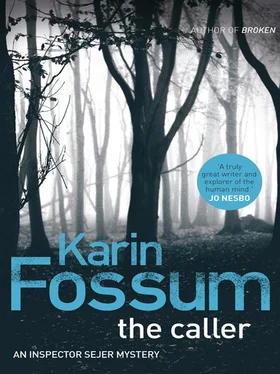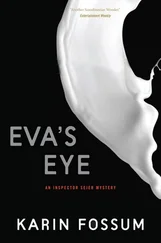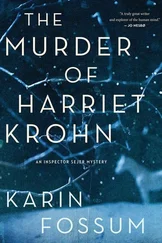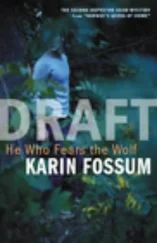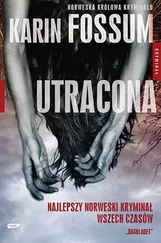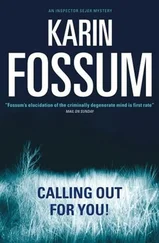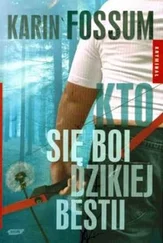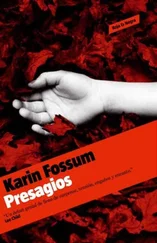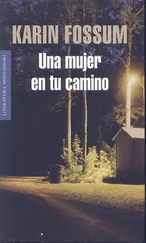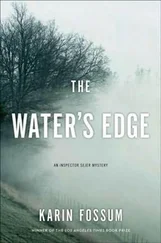Lily could tell he was thinking of something; his green eyes narrowed. Do I love him? she wondered abruptly. The thought ran through her head, and she was quite horrified. I guess I have to love him, it’s just us two. For eternity.
‘When you discipline a dog,’ Karsten said, ‘you do it immediately. The dog steals a meatball from the table, and you smack its snout. You have to do it right away. If the dog’s not punished in the span of three seconds it will never see the connection between the meatball and the hand that strikes.’
‘Why are you talking about dogs?’
He paused. Thought carefully about his words. ‘Our system may be just, but it’s too cumbersome. And what is too cumbersome surely cannot be effective. Some fool commits a crime. After a while he’s arrested and put in jail, and there he awaits his trial for months. Then there’s the trial, and the fool is finally sentenced. But of course he’ll appeal, and if he’s sentenced again, he’ll appeal again. Then he’ll be sentenced again. Then he’ll be given a tag because there are no vacant cells. How is that idiot supposed to see a connection?’ Karsten gesticulated wildly. ‘Put the guy in handcuffs on Monday, sentence him on Tuesday and throw him in his cell on Wednesday. Then he’ll stop stealing meatballs.’
To show how serious he was, he hammered his clenched fist on the table.
‘That doesn’t work,’ Lily said. ‘We don’t live in that kind of ideal society. We’re not dogs either,’ she added with a sideways glance at her husband. She lifted Margrete and put her on her lap. ‘Criminals must have a certain mental capacity, and it’s clear they see a connection. The most important thing is the consequence of their action. Besides, they’ll carry it with them the rest of their lives. It will go on their record. They’ll basically go through life tarnished,’ she said dramatically.
‘Mental capacity?’ Karsten snorted. ‘Do you think the idiot who was in our garden has any mental capacity?’
‘Yes,’ Lily said. ‘I do. Perhaps he’s very intelligent. And that’s the reason I’m so afraid. Precisely because he is so cunning.’
‘But you shouldn’t be afraid,’ Karsten cried out. ‘You should be livid!’
Again he pounded his fist on the table.
Lily closed her eyes. Never in her life had she been livid at anything. She couldn’t summon the feeling. Something could fester inside her, but the minute it rose to the surface it was converted into helpless tears. There was something hopeless about it all, something that attached itself to her whole being; she couldn’t scream and fight, couldn’t get angry as others grew angry when they’d been violated. She just curled into a ball in the corner and licked her wounds. I’m a victim, she thought. I’d go to the slaughterhouse of my own volition, if anyone asked me to.
‘Yes, well,’ she said aloud, ‘everyone is entitled to their opinion. The most important thing is that we’re better people than he is. That we demonstrate the fact by letting the authorities handle it.’
‘But they only go so far.’ He looked at her with narrow eyes. ‘What should we do if they don’t catch him?’
Lily cradled Margrete in her arms. ‘There’s nothing we can do about it,’ she said.
Hannes and Wilma Bosch had lived in Norway for fifteen years, and they had built a large log cabin on the road to Saga. At the front of the house was a porch, and on the porch was a hammock with floral cushions. Little Theo rocked in the hammock. Theodor Bosch had just turned eight. One of his biggest heroes was the Transformer Optimus Prime, a robot which, through some quick hand movements, turned into a truck. The other hero in his life was the explorer Lars Monsen. Theo had Lars Monsen on DVD, on a poster above his bed, on his bookshelf and on the brain. In his room he even had a thick, life-sized cardboard cut-out of Lars Monsen. At the bookshop in Kirkeby he had begged for it, and he had carried it all by himself down the long escalator to the car. That figure of the well-known explorer was the first thing Theo saw when he opened his eyes in the morning. Lars Monsen with the crazy hair and the narrow eyes. At night he dreamed he had the same fishing rod as Lars Monsen, the same tent and same canoe. He dreamed he paddled across the waters and down the stream with a rifle over his shoulder and a knife on his belt. Dreamed he trekked across icy lakes, warmed his hands by a fire and cooked trout over the flames. Tore the fish from the bones with sharp, savage teeth.
But Theo was a thin eight-year-old, and it would be many years before he’d be an adult and could take up the life of the wilderness. Daydreaming, though, he was good at daydreaming. His imagination knew no boundaries, and sometimes it took him to remote and strange places while the rest of him was safe among the hammock’s pillows. He swung and swung. He wore khaki shorts; his knees were round and white, like freshly scrubbed potatoes. His mother, Wilma, prepared a meal in the kitchen. Her body was strong and hefty and seemed infinitely safe. She was as solid as the big oak cabinet in the living room, the wooden bench in the kitchen, the nails in the wall.
So her husband, Hannes Bosch, thought.
He stood in the doorway and looked at her now, and when he turned he saw his tow-headed son in the hammock. The afternoon sun baked the cabin walls. He liked the rustling in the big woods, the broad, blonde woman at the stove, and his thin-legged son. He relished this fresh, pure ground on which they lived, the evergreens. Here is where Theo will grow up. He’ll wander in the big woods, swim in the cold waters and breathe the clean air into his lungs. The lumberjacks felled big logs and built this house for them at some distance from other people. They felt as though they had their own small country. Behind the house the stumps were lined up in a row, like soldiers at their posts.
Theo sat twisting a lock of hair between his fingers. The sun was low, the hammock swung gently. In the kitchen, Wilma Bosch opened the oven and lifted out a dish containing fish gratin. The entire house smelled of nutmeg.
‘Call Theo,’ she commanded. ‘And set the table.’
Hannes went to the cabinet. He removed three blue plates from the top shelf and cutlery from the drawer. Then he stuck his head out on to the porch.
‘Are you sleeping? It’s time for dinner. We’ll go to the woods afterwards, you and me.’
Theo wheeled round. ‘You and me,’ he repeated, ‘and Optimus Prime.’
Because the radio was playing ‘Kristina from Wilhelmina’, Hannes began to sing while setting the table. ‘Will you be mine?’ he bellowed, ‘my heart is burning.’ Wilma turned her back to him. Glass clinked in the kitchen, meaning that she’d opened two beers and a Fanta for Theo. Then they sat down.
A golden crust of breadcrumbs covered the gratin.
‘To Snellevann?’ Theo asked hopefully.
‘If you can walk that far,’ Hannes said.
They ate dinner in uninterrupted quiet. Afterwards, they helped Wilma clear the table.
‘We boys are going for a walk,’ Hannes said. They wore hiking outfits. Theo danced on the spot in anticipation. On his back Hannes carried a rucksack with a patch from Kvikklunsj chocolate bars.
‘Watch out for adders,’ Wilma called out.
First they had to walk along the main road. There was lots of logging traffic on this stretch, and the road was narrow and winding, so Hannes made sure Theo was closest to the shoulder. After fifteen minutes they came to a trail called Glenna. Shortly after that they reached the metal barrier. Three cars were parked in an uneven row in the little car park.
‘Now we’ll take it easy,’ Hannes said, ‘because our stomachs are full. Look around, you heard what your mother said. There might be adders nearby. What do you have on your feet? Sandals, I see. Well, sandals aren’t the smartest thing to wear. Lars Monsen wouldn’t approve. Do you think Lars Monsen walks across Canada in sandals? But let’s go. The sun will set soon, and if we’re lucky the moose will come out.’
Читать дальше
